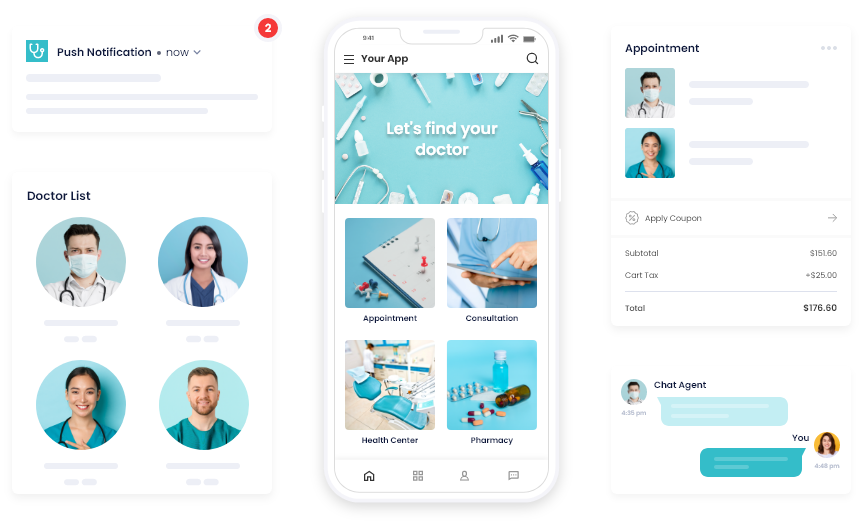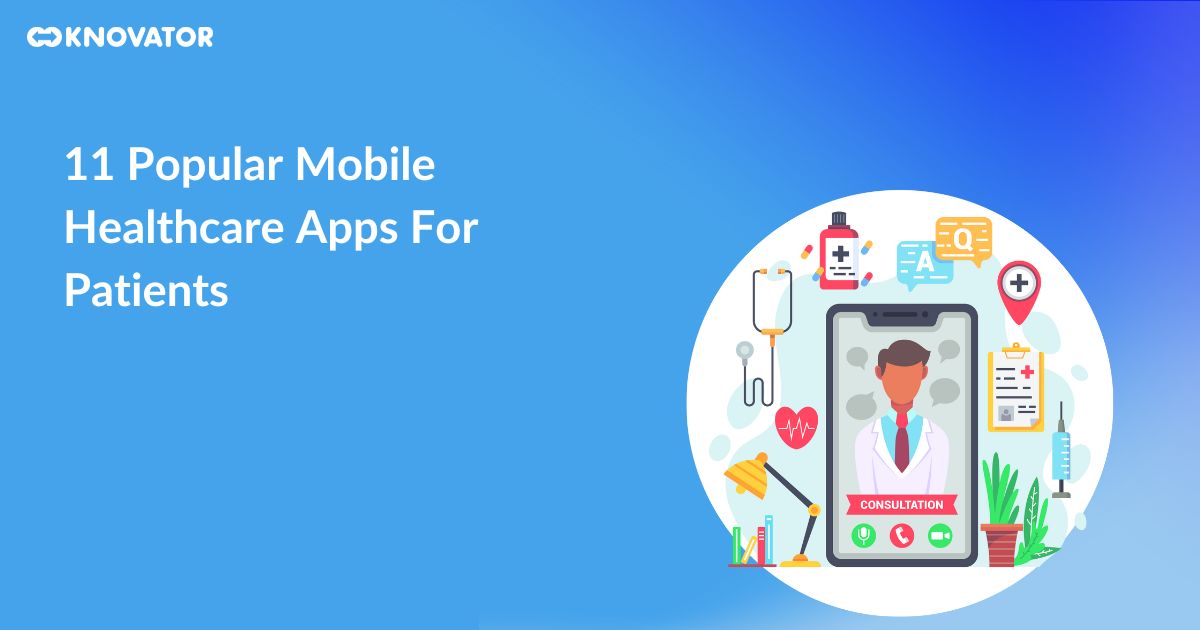The Advantages of Implementing a Mobile App for Clinics in Today's Healthcare
The Advantages of Implementing a Mobile App for Clinics in Today's Healthcare
Blog Article
The Future of Healthcare: Why Clinics Need a Mobile Application Today
As the healthcare landscape continues to develop, clinics deal with installing pressure to adapt to client expectations for better comfort and ease of access. The integration of mobile applications can serve as an essential technique for enhancing patient involvement and improving procedures.
Altering Patient Assumptions
As the landscape of healthcare develops, client expectations are going through a considerable improvement. Today's clients are increasingly seeking ease, availability, and personalized care.
Additionally, clients are becoming a lot more educated and equipped, typically looking into treatments and conditions online before appointments. This enhanced understanding is combined with a demand for transparency in health care procedures, including expense estimates and therapy alternatives. Therefore, companies are forced to adjust by embracing electronic tools that improve the patient experience.
The assumption for reliable and prompt communication has never been greater, with numerous individuals thinking about responsiveness a critical component of top quality treatment. mobile app for clinics. In this evolving landscape, health care companies need to identify these transforming assumptions and utilize mobile applications to foster a much more patient-centric approach, making certain that they not just fulfill yet go beyond the requirements established by today's informed customers
Enhancing Person Interaction

Mobile applications promote interaction in between people and doctor, enabling real-time appointment scheduling, pointers for medication adherence, and direct messaging features. These functionalities not just enhance ease however likewise build a sense of responsibility amongst people. Furthermore, mobile apps can use academic content tailored to specific demands, aiding individuals better recognize their problems and therapy choices.
The integration of gamification elements within healthcare apps can additionally inspire clients to engage in healthy and balanced behaviors, enhancing positive way of living modifications. By tracking progression and fulfilling accomplishments, clients are more probable to stay devoted to their health and wellness objectives. Ultimately, boosting person interaction via mobile applications causes improved health and wellness end results, better person complete satisfaction, and a more joint healthcare experience. Centers that prioritize this facet will likely see a considerable effect on the high quality of care supplied.
Simplifying Clinic Operations
Improving center procedures is crucial for improving operations effectiveness and maximizing patient treatment. The execution of mobile applications can substantially decrease management worries, permitting healthcare providers to focus extra on person interactions. By automating appointment organizing, person check-ins, and billing processes, facilities can reduce wait times and enhance general operational effectiveness.
Mobile apps likewise help with real-time accessibility to individual records, allowing healthcare professionals to make enlightened choices rapidly. This immediacy not just boosts the quality of care but also lowers the chance of mistakes connected with misplaced or obsoleted details. Leveraging mobile innovation supports an extra orderly method to taking care of individual follow-ups and treatment strategies, guaranteeing that no critical actions are ignored.
Furthermore, mobile apps can streamline supply administration by offering facilities with tools to keep an eye on medications and products efficiently. This permits for timely replenishment and aids avoid disturbances in person care due to equip lacks. By integrating these capabilities into their daily procedures, clinics can produce a more reliable and natural environment, eventually leading to enhanced person outcomes and contentment. Embracing mobile modern technology is not simply a pattern; it is a needed evolution in the medical care landscape.
Improving Interaction Channels
Efficient communication is regularly cited as a foundation of quality healthcare shipment. In today's busy medical environment, mobile applications can dramatically enhance communication channels between centers, people, and doctor. By incorporating mobile applications right into their operations, clinics can facilitate real-time interactions, guaranteeing that individuals get timely info regarding their visits, test results, and treatment plans.
Mobile apps also encourage people to connect straight with their medical care groups with safe messaging functions. This direct line of communication fosters a sense of engagement and allows for immediate clarification of problems, which can bring about far better adherence to therapy methods. Push notifications can advise individuals of upcoming appointments or medication timetables, minimizing no-show rates and boosting general health end results.

Remaining Competitive in Health Care
In a swiftly progressing medical care landscape, organizations have to prioritize advancement and flexibility to maintain an one-upmanship. The assimilation of mobile read what he said applications into health care solutions is no much longer optional; it is important for centers intending to boost individual engagement, enhance operations, and improve total solution distribution.
As people significantly depend on digital platforms for health administration, centers that stop working to take on mobile modern technology risk falling back. A well-designed mobile app can provide functions such as visit scheduling, telemedicine examinations, and accessibility to clinical documents, supplying individuals with ease and cultivating commitment.

Competitors are additionally investing in mobile remedies, so remaining ahead requires continual enhancement and remaining notified about technical developments. Facilities need to not just execute mobile applications but likewise participate in routine updates and improvements. Eventually, the effective combination of mobile modern technology will identify forward-thinking pop over to this site health care companies and set the standard for patient-centric care in an electronic world.
Final Thought
To conclude, the combination of mobile applications in clinics is critical to deal with the advancing landscape of client assumptions. By enhancing client involvement, improving procedures, and boosting communication channels, facilities can significantly increase wellness outcomes. Furthermore, the fostering of mobile technology settings facilities to continue to be competitive in a progressively electronic medical care setting. Ultimately, the tactical application of mobile applications represents a critical step toward providing accessible and customized health care, thus satisfying the requirements these days's empowered clients.
Eventually, boosting patient engagement with mobile applications leads to enhanced health outcomes, higher patient satisfaction, and a much more collective healthcare experience.Mobile applications likewise help with real-time access to individual records, enabling health care professionals to make enlightened choices swiftly. In today's fast-paced clinical atmosphere, mobile applications can substantially enhance interaction channels in between centers, clients, and medical care carriers.Mobile apps also equip clients to connect straight with their healthcare groups through safe messaging features. Inevitably, the strategic application of mobile applications represents a crucial action toward providing personalized and easily accessible healthcare, therefore fulfilling the requirements of today's empowered clients.
Report this page